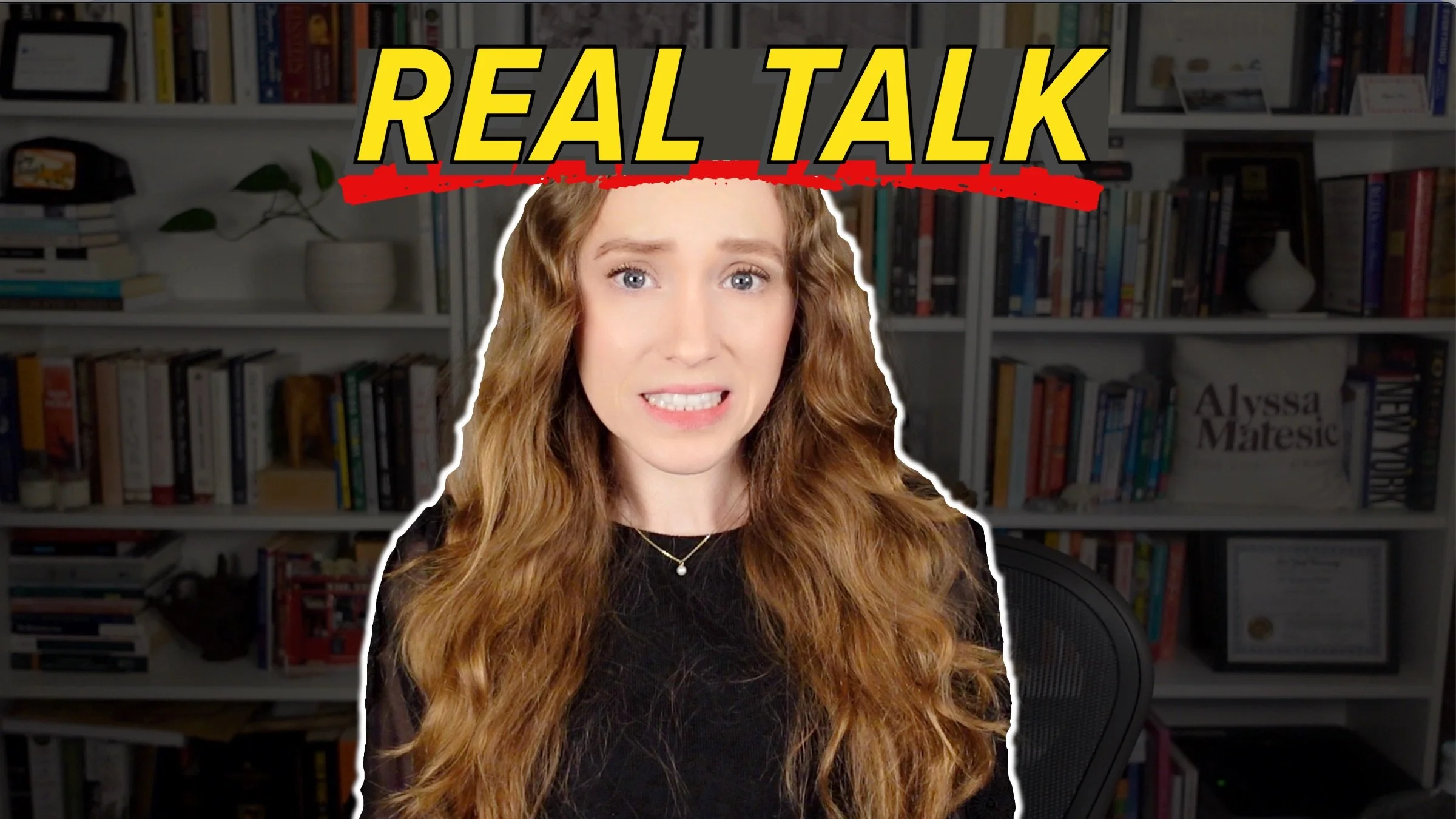How to Get Published With the Big Five in a Nutshell
HIT PLAY OR READ THE POST BELOW:
One of the questions I get asked the most by emerging authors is, “How do I get my book published by a major publisher?”
Before I experienced it for myself, I had no idea how the book publishing industry worked. And as a hopeful author, traditional publishing can be a very strange and enigmatic world. To help demystify the traditional publishing process and make it more achievable, I’m going to lay out the steps you'll need to take if you want to get published with the Big Five.
Now, when I refer to the Big Five publishers, I'm talking about the five biggest publishing houses in the U.S., which dominate the book publishing market. Another note: the process that I'm going to outline is geared toward novels, as that's what I have most experience with. However, those who are seeking to publish nonfiction or other types of books can still take a lot of knowledge away from this article.
Let’s start!
1. Finish your book
The first thing to do–and this is a big one–is to finish your book. You want to have a workable draft that you can revise, workshop, and ultimately pitch to agents. This might be the hardest part of the whole process, so if you currently have a finished draft, I want to say congratulations! Finishing a book is honestly a huge achievement.
2. Consult beta readers or an editor
It may be scary, but after you’ve finished your draft, it’s time to put your book in the hands of readers. You can consult a group of trusted beta readers who could be friends or maybe members of a writing group, or you can hire a professional editor for an editorial assessment. That is a big-picture critique of what's working and what could be improved in your current draft.
3. Revise
Once your trusted readers or editor have provided feedback, it’s onto the revision process. Allow this stage of your writing journey to take as long as it needs. Sometimes distancing yourself from your draft for a few months or even up to a year can give you the insight you need to come back with a fresh perspective.
4. Consult beta readers or an editor (again!)
As you edit, you can check in again with your beta readers or editors. It is nearly impossible for a book to be perfect from its second draft, so again: don’t rush this process! If you want a book you’re proud to see on the shelves, allow yourself and your project space for edits. The truth is that if you want to get published with the Big Five, it’s important to have a manuscript that is as strong as it can possibly be.
5. Create a dream list of literary agents
After you're happy with and confident in your revised draft, it's time to start thinking about finding a literary agent. Your literary agent will be one of your biggest partners in publishing. They represent you to editors at the Big Five publishing houses and, in exchange, receive a commission, which is a percentage of your book deal and royalties.
This is because Big Five publishers don't typically accept unagented manuscripts, so if you have your heart set on being published by a major publisher, you're going to have to get an agent.
But where to start looking for agents? There are tons of resources and databases out there that will help you find a literary agent that specializes in your genre. There’s also an old-school trick where you flip to the acknowledgements section in the back of some of your favorite books. Authors usually thank their agent in that section, so if you have an author you absolutely love, you can see if you can work with their agent as well.
I recommend creating a dream list of agents that also contains their email addresses and basic credentials, such as the genre they specialize in. You're going to need that list as a reference point once it’s time to start to…
6. Write your query letter
The query letter is your email pitch to the agent where you describe your book and include some sample pages. It’s akin to writing a cover letter for a job, but instead of asking for employment, you’re asking for them to take you on as a client for representation.
Writing a killer query letter can be a tricky task, so you can consult your beta readers or an editor again to get their eyes on it, as you want to make sure you're enticing the agent while remaining clear and concise.
7. Send your queries
At this point, you're feeling good about your novel draft and you have a strong query letter: that means it is time to send out your queries.
I recommend sending multiple queries at a time, rather than waiting for a single agent to respond before moving onto the next. To compare the querying process to fishing: you want to cast your net wide, even if you only need one to bite. Also, like fishing, querying requires a lot of waiting and patience, because agents' inboxes are typically flooded with queries. It can take weeks or even months for them to respond to yours, and in some cases you might never hear back.
The important thing to remember with querying is that rejection is not personal–there are many more factors than the agent not liking your manuscript. The best part is you can always continue reaching out to new agents and sending out additional batches of queries.
8. Keep a tracker
Because the querying process can be lengthy, I recommend keeping a tracker, like an Excel file or a Google Sheet, where you log who you reached out to and when and if you got a response. If you keep at it, you just may just get a bite.
9. Receive an offer of representation
If the agent is interested in your project, they will start by requesting your full manuscript. That doesn't necessarily mean they're ready to sign you on as a client, though. You'll still have a bit of back and forth correspondence once they've read your full draft and, if all goes well, they'll make you an offer of representation.
10. Complete more revisions
I wish I could say that the offer of representation is your golden ticket to getting published by a major publisher, but it still doesn't guarantee that your novel will get a book deal. Your agent will likely have their own revision suggestions for your book, specifically to help position your book in the marketplace. This isn’t to say that they’ll make your book more conventional or unoriginal. Rather, as they are so in-tune with what the book market’s trends and demands are, your agent will be able to pinpoint more subtle issues in your manuscript and offer suggestions to make it appeal to the Big Five.
11. Agent submits book to editors
Once you and your agent are feeling good about your draft, the agent will submit the novel to editors at the publishing houses for consideration. They write a pitch similar to your query letter but directed at specific editors.
This step in the process is in your agent’s hands. Feel free to sit back and relax!
12. Get a book deal!
If one of the editors likes your novel, they will make an offer with your agent, and that's your golden ticket! After negotiations, you can sign the book deal and start planning your collaboration with the editor at the publishing house.
There's a lot that happens after that point as you work with your editor, but I'll stop here at the book deal because it’s the biggest milestone.
These are the steps to get published with the Big Five in a nutshell. To reiterate, this is a general overview, but I hope it gives you some behind-the-scenes insight on how the traditional publishing process works.






